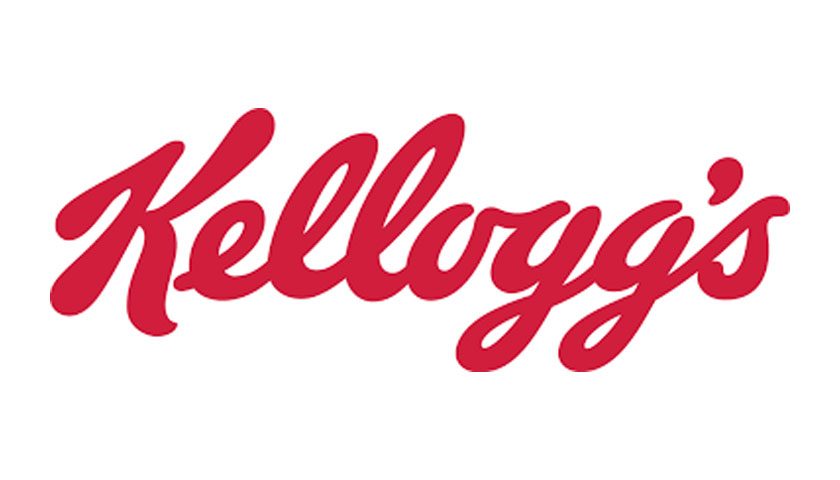16 per cent of teachers report regularly parting with their own money to buy food or snacks for kids, while over a quarter (27 per cent) have given away food they personally brought in for their own snacks or meals.
A new report launched today, Hungry to Learn: The impact of morning hunger on our schoolchildren, reveals the extreme lengths teachers are going to feed hungry children at school; a sign of the increased pressures schools and families are facing when it comes to food poverty.
The report by Kellogg’s includes a study of 867 teachers and 2,000 adults and is being launched to mark the opening of its 2025 Breakfast Club Awards.
It also revealed that the average teacher spends nearly £25 a month of their own money – more than £220 across the school year – feeding hungry pupils. This comes as over three quarters (78 per cent) of teachers believe there is a significant issue with children not having daily access to food.
Evolving role of teachers
With an average of four hours a week spent helping and supporting hungry children, 80 per cent of teachers surveyed admitted they often feel more like a caregiver than a teacher, and 78 per cent said they felt the school had become more of a ‘community hub’.What’s more, over one in twenty (seven per cent) claim they may not have become a teacher, had they known the extra ‘pastoral responsibility’ that would come with it, equating to around 45,000* teachers in the UK. Another 30 per cent would have given it more thought due to the increased pressures they face.
Hunger in the morning is on the increase
This extra responsibility comes as over one third (36 per cent) of teachers surveyed claim to see hungry children arriving at school every day, with almost half (49 per cent) seeing an increase in the number of children in their classroom going hungry compared to last year.
Of the 2,000 adults surveyed, a quarter admitted they struggled to feed their families, with more than half (53 per cent) having cut back on electricity and gas to pay for food, while 52 per cent have borrowed money from friends and family to cope with their financial commitments as the cost of living continues to bite.
Almost three quarters (74 per cent) said that their child goes to a breakfast club compared to 66 per cent in 2023 – highlighting the growing demand for this provision amongst families.
Benefits for children and families
When asked about the impact they were seeing in the classroom, some of the most common side effects of hunger noted by teachers include being tired in class (81 per cent), having difficulty concentrating (79 per cent) or disruptive behaviour (50 per cent).
As well as helping to alleviate this hunger, breakfast clubs also provide social and wellbeing benefits, with 64 per cent stating their children enjoy going to spend more time with friends – helping them to build connections with their peers.
The launch of the research report marks the return of Kellogg’s Breakfast Club Awards for another year, recognising best practice and innovation among the thousands of breakfast clubs that take place at schools across the UK, and honouring the teachers and school communities tackling hunger in the classroom.
Andrew Ridge, social impact and sustainability lead at Kellogg’s UK, said: “Teachers are truly going above and beyond to help kids stay fed and fulfilled. As the cost of living continues to bite, parents are really feeling the pinch which is sadly leaving many children struggling to focus on their education due to the impact of being hungry in the morning.”
“Going to school on an empty stomach as a result of skipping breakfast can be truly detrimental, and it’s worrying to see teachers are being left out of pocket as a result. We must continue to join forces as educators, businesses and government to help support those communities, and take collective action to tackle hunger.
“We look forward to celebrating some of the country’s best examples of breakfast clubs at this year’s awards, and the fantastic teachers and schools who make them happen, highlighting those who are making considerable impacts on their local community.”
The findings of the report were supported by one of the UK’s leading researchers into breakfast clubs and school meals. Professor Greta Defeyter OBE, Dean of Social Mobility Policy Engagement at Northumbria University, said: “This timely large-scale report highlights teachers and adults’ perceptions of the negative impacts of poverty and food insecurity on families, and the additional pressures this places on school budgets and school staff. However, the report also clearly illustrates how childhood poverty is placing an enormous strain on school budgets and on teachers at both a professional and personal level. The specific focus on school breakfast clubs in this report, with the much-needed inclusion of teachers’ perceptions, will support and inform governments in rolling out school breakfast policies and programmes across the UK”.
Neil Leitch, CEO of the Early Years Alliance, added: “Education today goes far beyond the classroom. From early years settings to schools, these spaces are more than places of learning, they’re becoming vital community hubs that touch finance, wellbeing, health, and more.
“Children showing up to early years settings hungry has, unfortunately, become morecommonplace. In response to this, educators have started providing food paid for out of their own pockets. This goes to show what we have long known: the dedication, professionalism, and commitment of those working in early years settings is second to none.
“The report highlights the importance of getting it right for all children and it’s great that companies like Kellogg’s are championing and supporting vital initiatives to make this a reality.”
Kellogg’s has been supporting breakfast clubs for over 25 years. During that time, the business has invested over £6 million to support school breakfast clubs, with schools able to use Kellogg’s grants for any aspect of their clubs including equipment, ingredients or staff, so the school can use the funding in a way that best suits their needs.
The clubs offer children a welcoming space to enjoy a provided breakfast, ensuring they’re starting their day in a safe and healthy environment – helping to enhance attendance, attainment and overall child wellbeing.
Last year, Kellogg’s received nearly 700 entries for its Breakfast Club Awards, double that of the previous year – reflecting the growing demand for breakfast clubs. For the 2025 awards, schools can enter here: https://www.kelloggs.co.uk/en_GB/our-
story/breakfast-club-awards.html with entries closing on 23 May 2025 at 17.00. A specialist panel of judges will assess the entries, and winners will be announced at a ceremony in Westminster later this year.

